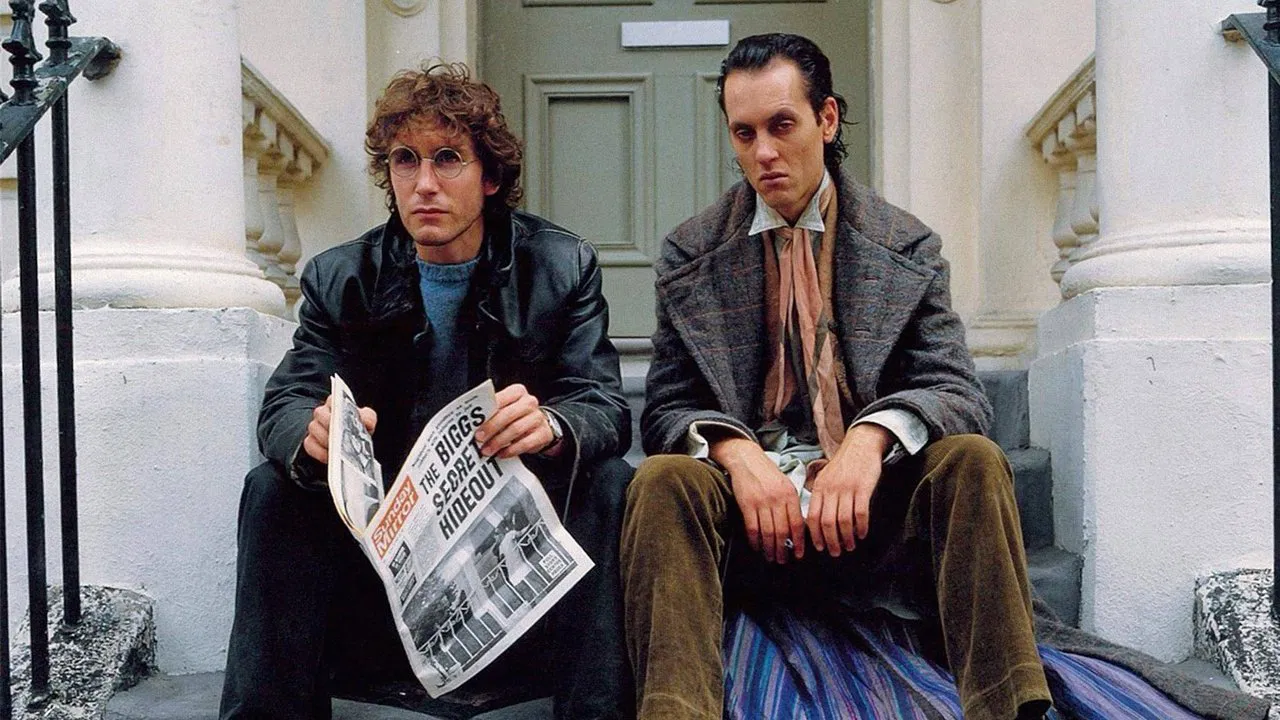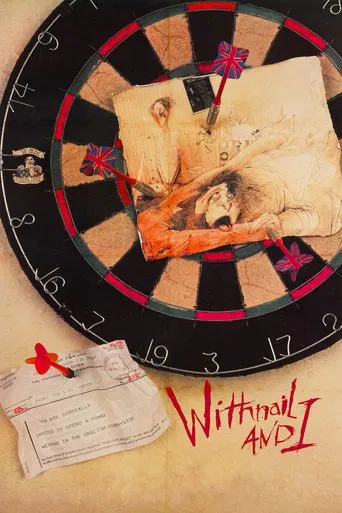Dynamixor
The performances transcend the film's tropes, grounding it in characters that feel more complete than this subgenre often produces.
StyleSk8r
At first rather annoying in its heavy emphasis on reenactments, this movie ultimately proves fascinating, simply because the complicated, highly dramatic tale it tells still almost defies belief.
Sienna-Rose Mclaughlin
The movie really just wants to entertain people.
Philippa
All of these films share one commonality, that being a kind of emotional center that humanizes a cast of monsters.
shakercoola
One of the most quotable comedy films in British cinema. The central theme is man vs himself, and the story is about self-absorbed, down-on-their-luck Bohemian actors going on holiday by mistake. Richard E. Grant is wonderful as a tragi-comic thespian. Richard Griffiths is divine as the 'uncle' with lust for the eclectic and the unmentionable. It is very watchable, very amusing and very good.
josecanter
I like my substance abuse surrounded by dry British humour (though I'm not really a fan of Trainspotting). Withnail & I is full of narcissism, paranoia and gleeful disobedience but also a sense of despair - an understanding this lifestyle is unsustainable and self-destructive - adding the pathos that makes a comedy last. You can tell it was based on real experiences (of the writer-director, Bruce Robinson, who hasn't done that many films, but I really need to check out How to Get Ahead in Advertising), especially some of the gags about washing up. Good performances from Paul McGan, Richard E. Grant, and Richard Griffiths (who you may recognize from the Harry Potter films) give weight to a script that is narratively thin, but character-rich.
FlashCallahan
London, approaching the end of the swinging sixties. Two 'resting' actors, Withnail and 'Marwood', fed up with the damp, piles of washing-up, mad drug dealers and psychotic Irishmen, decide to leave their squalid Camden flat for an idyllic holiday in the countryside, courtesy of Withnail's uncle Monty's country cottage. When they get there, it torrential rain, there's no food, and their basic survival skills turn out to be somewhat limited. Matters are not helped by the arrival of Uncle Monty, who shows an uncomfortably keen interest in Marwood...What you may have missed on the first or even second viewing (it took me at least four) is that Robinson is basically satirising every class of person, every type of educated fellow, so no one, not even 'I' comes across as the hero in this biting movie.The titular characters are people that we see every day, educated, but rich from the bank of parents, and sitting there, miserable, putting the world to rights, when they are what is wrong with society. It's a timeless tale that's been done for every demographic, every time frame, and will continue to do so for the rest of time.But what the difference this film has from others is that Robinson demands you to care for the two. With nail is an insufferable person, one you would avoid at all costs if you saw him in a bar, but here, you just want him to make a foo of himself again, you want that Irish man in the pub to punch him, but despite all this, you like/pity him.Mar wood on the other hand is the sufferer,mother one who is misunderstood, the poet, who has a voice, but no one listens, again, someone with whom you are familiar with, but then, his voice is in his head, he rarely speaks to anyone else except Withnail, and only Monty really acknowledges both of them at the same time.So in many senses, should the film be called Withnail is I?Maybe I'm looking too much into the film, but rest assured, it's deliciously funny, Grant has never been better, and it has an awful, cold bleak feel to it, the feeling you get when the old dear bites into the egg sandwich sets the tone of the film.One of the great British comedies, indispensable.
chaos-rampant
This takes a pretty ferocious look at modern life, a gray British life to be sure but it more generally directs its disillusionment towards a global generation that could even faintly remember the Stones and Vietnam, or at least grew up on that certain charged dream.It is about the dissatisfaction bred by city life, the misery and sense of sickness, more pronounced of course. Now we have settled down, we are beginning find transcendence in this world. Two down-on-their-luck actors take a trip to the countryside, there fail to find much cleansing and report back to normative life, Withnail to return to his hazy half- life of drinking and vexation, the narrator to go on to a 'normal' life.Their groundlessness with all its freedom has no reflection merely anxiety and madness, and finding an anchor, as it happens in the end, means becoming an actor on the stage, assuming again the old narrative. Sure it is hilarious to watch, but deep down it is a tremendously sad film.Here is where another quality of the film manifests, British. The Brits are trapped in a historical narrative, anchored in Shakespeare and the old empire. Their films when they channel that self are verbose, logical, theatrical, hardly visual outside a square narrative space. Smart, expertly narrated, impeccably acted; but hardly what I'd call contemplative.Lawrence of Arabia could only find contemplation in a desert that was precisely somewhere else, by adopting a new self for whom that desert could be an uncertain abode. For Dennis Potter, closer to my taste, the encounter with the viewer who looks back at himself happened in old songs and movies.So when the Brits rebel against that which is so ingrained in them, story, the results generally tend to be thin. Merely squashing story is liberating enough, refreshing of its own. This is not so thin as the Pythons but still in a similar vein of situational disorder, skidding from one prank to the next. Implicitly, however, the filmmaker who also wrote this, knows that he is not doing a collection of skits. The film's title is a clue. There is an I here for whom the story exists as both world and hazy recollection. A writer, one of the two actors, is our troubled narrator, Withnail a sort of fractured self lost in delirium and outgrown in the end.So we have this British rebellion against the yoke of narrative in a clear way. Everywhere they go they become actors, they constantly reinvent themselves, imagine narrative, you'll see this in every situation from the scuffle in the pub early to the poacher who is out to kill them.And this yields both comedy and inner pain, coming from a sensitivity to the cruelties of normalcy. It's as if life cannot be approached simply, the absurd spectacle reconciled with, say a poacher with eels down his pants—it is to them a source of fear and vexation precisely because it doesn't make much apparent sense. This gonzo style obviously emulates Hunter Thompson, in fact the promotional material for the film are designed in Thompson's vein by his cartoonist since the Kentucky Derby days, Steadman. Gilliam in his Fear and Loathing went overboard in trying to actually portray a drugged perception, but it was his way of preserving the essence of a world at a certain remove and the self tearing at the viewing walls.It fits here like a charm against the mannered world of the Brits until the silly bit with the gay uncle derails the second half—from that point because suddenly the urges make sense, there is story and it is pretty unambiguous and certain. So unwittingly it falls back to that British trap that it was trying to claw its way from.The filmmaker would return to Thomson with Rum Diary, this much better captures the spirit.

